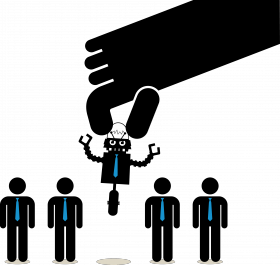foliomag.com

Why advertising will gravitate to established companies over time.
It's true, probably, that you could talk about digital advertising every day and not cover all the critical aspects of it. Last week, I wrote about how the whole sprawling, fast-moving digital ad industry feels, poorly structured, unformed, and fast-and-loose with rules. All of those things are true, and it's not certain what the catalyst will be to improve things.
It's hard to imagine how and when a world with rampant fraud, declining CPMs, sleazy ads and sleazy click bait sites, ad blocking on the increase, will mature into a stable, coherent business. Maybe more important than all of these things is that consumers don't really like online advertising. That's a more fundamental challenge.
At any rate, in this environment, there are plenty of realities that are relevant to the magazine industry. Here are a few:
- The growing concern around fraud means that strong and established companies will ultimately win out. Hearst Magazines President David Carey told me this week that he believes that the focus these days on ad fraud is good for companies that care deeply about their reputations. "Advertisers will spend with companies they know will be here five years from now and 25 years from now," Carey said. "This conversation is good for players of stature."
- Programmatic creates increased efficiency in at least a couple of ways. Last week, I recounted how only perhaps 25 cents on every dollar spent on digital advertising actually results in an ad being viewed by a human. That may be true, but in some uses of programmatic, it's pure remnant space, so that 25 cents represents a major increase over zero, and that's a good thing for publishers. Interesting thought. The other way programmatic advertising is efficient, is that because it's real-time buying, media companies monetize their traffic spikes. Predicting viral content is hard to do. Buying is done based on impressions, which are sold on the basis of predictable averages. When a story gets hot, an advertiser either gets bonus impressions or the space goes unsold. Programmatic selling mitigates that.
- Programmatic has plenty of junk in it. The marketer may think they're buying media executives on the West Coast on Thursday afternoons, so why is the In-N-Out Burger joint's night manager on the file?
No comments:
Post a Comment